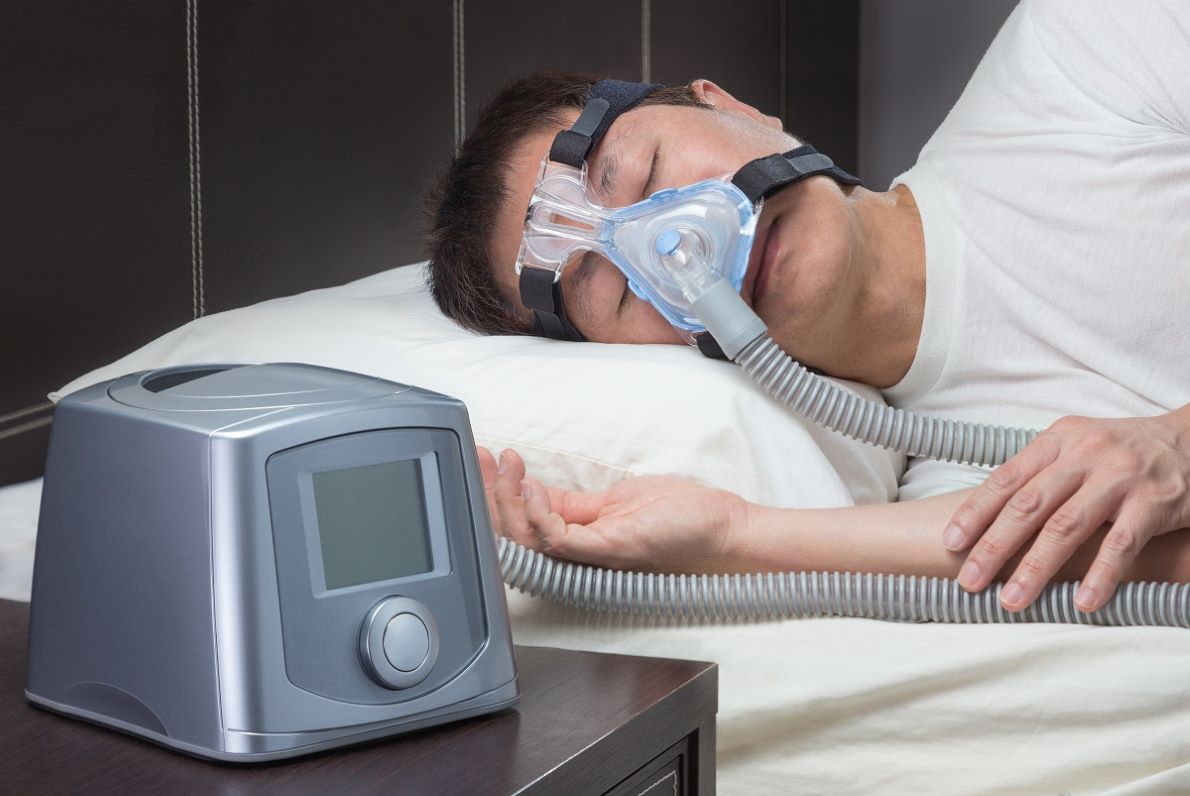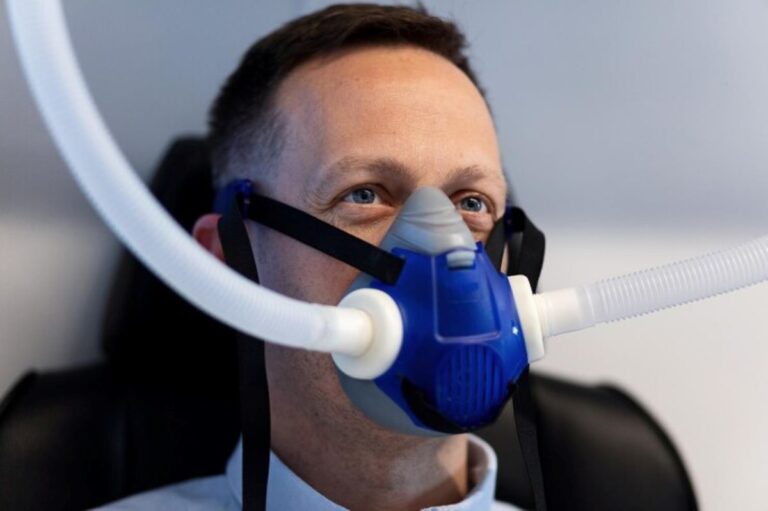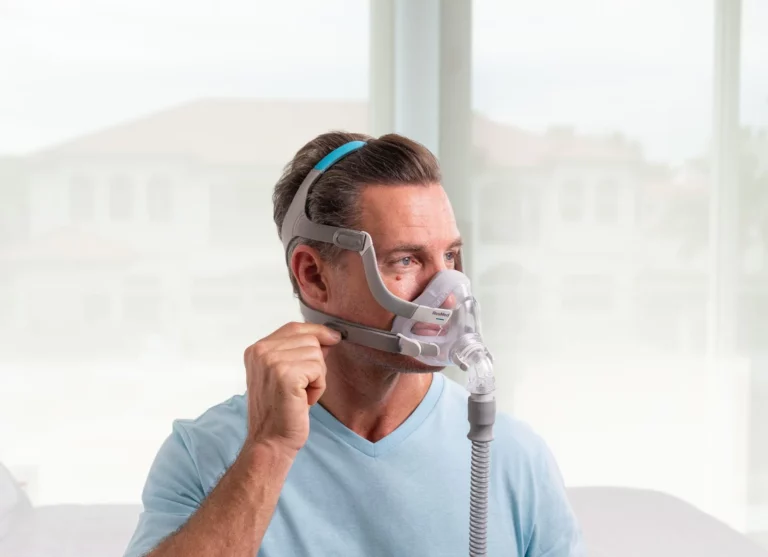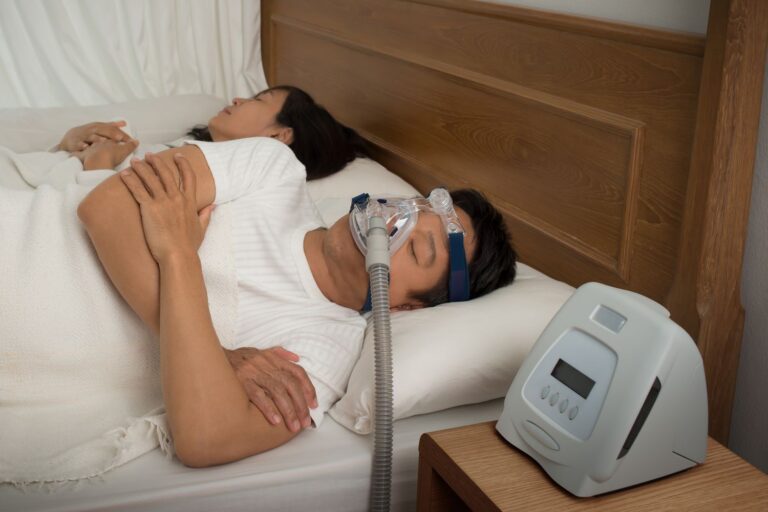For millions of adults living with sleep apnea, maintaining healthy sleep while traveling can feel like a challenge. Traditional CPAP machines are often bulky, making them less convenient for flights, hotels, or long road trips. Thankfully, travel CPAP machines offer a compact, lightweight, and portable solution that allows users to continue CPAP therapy no matter where life takes them.
Understanding Sleep Apnea and CPAP Therapy
Sleep apnea is a condition where your airway collapses or becomes blocked during sleep, causing pauses in breathing. These interruptions reduce sleep quality, decrease oxygen flow, and can lead to daytime fatigue, headaches, and long-term health risks such as heart disease.
CPAP (Continuous Positive Airway Pressure) therapy works by delivering a constant flow of air through a mask, keeping the airway open and ensuring uninterrupted breathing. Using CPAP regularly improves sleep health, restores energy, and helps reduce complications associated with untreated sleep apnea.
Why Travel CPAP Machines Are a Game Changer
Traditional CPAP machines are effective but often cumbersome. Travel CPAP machines are designed for portability without compromising functionality.
Benefits of Travel CPAP Machines
- Compact and Lightweight: Easy to pack in a carry-on or backpack.
- Battery-Friendly Options: Many models can operate on rechargeable batteries, ideal for camping or flights.
- Customizable Pressure Settings: Maintain therapy effectiveness anywhere.
- Quiet Operation: Promotes better sleep quality, even in unfamiliar environments.
Real-world users often report that having a travel CPAP machine has allowed them to maintain healthy sleep while on business trips, vacations, or even overnight visits to relatives.
See more: Home Sleep Study Hobart: Convenient At-Home Testing Explained
Tips for Using Travel CPAP Machines Comfortably
Even with a compact machine, adjusting to travel CPAP use can take some practice. Here are tips to maximize comfort:
1. Pack Your Essentials
- Travel CPAP machine
- Lightweight mask
- Tubing and power adapters
- Humidifier or distilled water if needed
2. Choose the Right Mask
- Nasal masks and nasal pillows are often more portable.
- Ensure a snug fit to prevent air leaks.
3. Adjust Settings Gradually
- Use ramp features to increase air pressure slowly.
- Start with familiar settings from your home CPAP machine.
4. Humidification Solutions
- Travel CPAPs often have compact humidifiers or allow for a small water chamber.
- This prevents dryness in the nose and throat, maintaining comfort on the go.
5. Cleaning on the Road
- Carry disposable wipes or travel-friendly cleaning kits.
- Keeping your equipment clean reduces the risk of irritation or infection.
Maintaining Consistency While Traveling
Consistency is key to CPAP therapy. Even a single night without proper use can reduce the effectiveness of sleep apnea treatments.
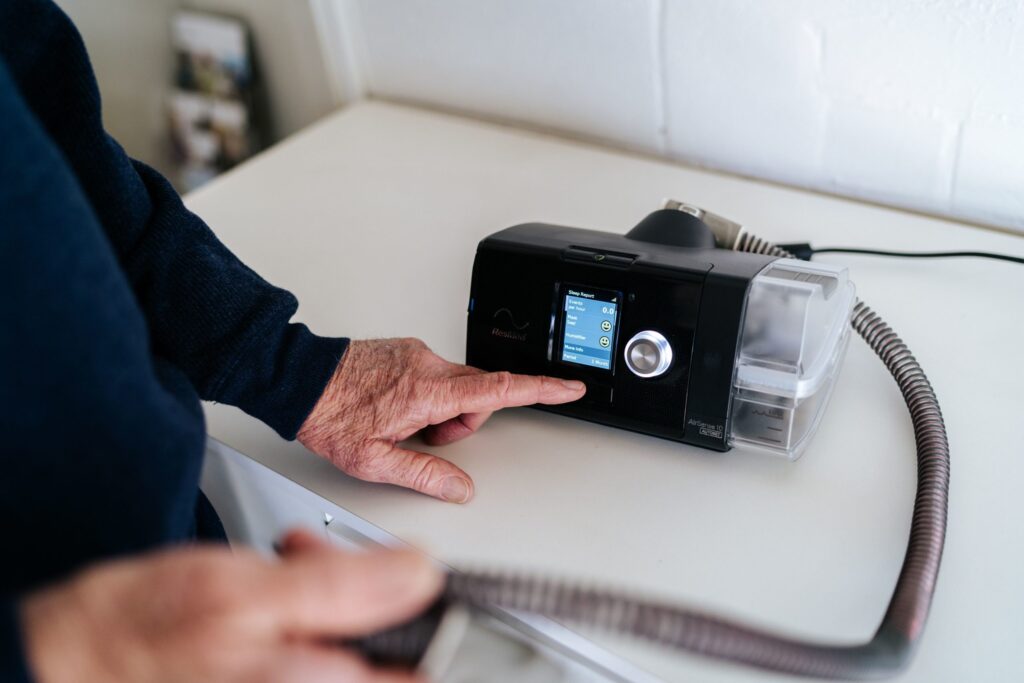
Strategies for Consistent Use
- Schedule your nightly routine wherever you are.
- Set reminders on your phone or use smart apps integrated with some travel CPAPs.
- Prioritize using your machine even if bedtime is irregular while traveling.
By maintaining consistency, you continue to support oxygen flow, heart health, and overall daytime energy.
Addressing Common Challenges While Traveling
Traveling with CPAP therapy may present challenges, but most are easily managed:
Mask Fit
- Air leaks are common when sleeping in new environments.
- Test different mask styles or adjust straps for the best fit.
Dryness or Irritation
- Use a small, portable humidifier or nasal moisturizer.
- Drinking water before bed can help prevent dryness.
Noise Concerns
- Modern travel CPAPs are whisper-quiet, but a soft surface like a pillow or towel under the machine can further reduce sound.
Power Issues
- Many travel CPAPs are compatible with batteries or universal power adapters.
- Plan ahead for flights, hotels, or camping trips.
Travel CPAP Machines and Long-Term Sleep Health
Maintaining CPAP therapy while traveling ensures that your sleep and overall health remain on track. Studies in sleep medicine confirm that consistent use reduces daytime fatigue, improves alertness, and lowers the risk of heart disease and sleep apnea complications.
Using a travel CPAP machine also encourages better adherence to treatment, as it eliminates the excuse of “I can’t bring my CPAP with me.” With portability and comfort, patients can enjoy healthy sleep wherever they go.
Final Thoughts
Travel doesn’t have to interrupt CPAP therapy. With travel CPAP machines, users can maintain consistent therapy, protect their sleep health, and enjoy energetic mornings even while away from home. Choosing the right machine, mask, and routine ensures a seamless transition from home to travel — making it easier than ever to manage sleep apnea symptoms on the go.
If you have sleep apnea and frequently travel, consult your sleep specialist about travel CPAP options that suit your lifestyle. With proper planning and consistency, restful nights are possible anywhere in the world.
FAQS
Yes. Modern travel CPAP machines are compact but maintain the same pressure settings as home units, effectively managing sleep apnea symptoms on the go.
Use a portable humidifier or nasal moisturizer. Ensure you drink water before bed and clean your mask regularly to prevent irritation.
Many airlines allow CPAP devices during flights. Check airline policies and bring the machine’s power adapter or battery pack for uninterrupted therapy.
Travel CPAP masks are often smaller and lighter but provide the same effectiveness. Nasal pillows and compact nasal masks are popular choices for portability.

